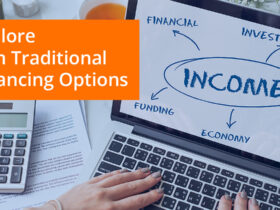If you’ve ever been part of a growing business, chances are you’ve heard the term “ERP system” thrown around. Maybe someone from finance brought it up in a meeting. Or perhaps your operations manager mentioned it during a workflow conversation. It sounds like a big deal. A powerful solution. Maybe even a secret weapon for scaling your business.
But here’s the big question: are ERP systems truly the game-changer they’re hyped up to be, or are they just another expensive software trend that only makes sense for large corporations?
First Things First: What Is an ERP System?
ERP stands for Enterprise Resource Planning. That might sound like something only big companies need, but in reality, ERP software is simply a tool that helps manage and streamline different business processes under one digital roof.
Imagine one system that connects your:
- Inventory
- Finance and accounting
- HR
- Customer orders
- Procurement
- Sales
- Manufacturing
- And even your project management tools
Instead of juggling different software for each department, ERP brings everything together in one place, helping teams share data, track progress, and stay aligned.
So Why All the Hype?
People love to talk about ERP systems because, when done right, they can solve a lot of problems:
- No more duplicate data entry
- Fewer manual errors
- Easier reporting
- Better collaboration across departments
- Faster decision-making
- Stronger compliance and audit trails
It’s no wonder ERP software is used by companies across the world—from global enterprises to growing local businesses.
But here’s the twist: implementing an ERP system isn’t as simple as clicking “Install.” It requires time, money, training, and sometimes a shift in how your company works.
And that’s where the debate really begins.
The Case For ERP in Small Businesses
Let’s start with the positive side, because yes, small businesses can benefit from ERP systems.
Centralised Data = Smarter Decisions
When your data is scattered across Excel files, accounting software, and separate order management tools, it’s hard to get the full picture. ERP systems pull everything together, giving business owners better visibility—and ultimately, better control.
Need to check how much inventory you have in real time? Or see how late payments are affecting your cash flow? ERP makes it easier.
Saves Time and Reduces Errors
Manual processes are not only time-consuming—they’re risky. The more you type things in by hand, the more likely you are to make mistakes. ERP automates a lot of the back-end admin work so your team can focus on, well, actual work.
Supports Growth
One of the best things about a good ERP system is that it grows with you. As your company expands—whether by opening a new location, hiring more staff, or increasing your product lines—your ERP can help you scale without drowning in spreadsheets.
Encourages a More Professional Approach
Implementing ERP often forces businesses to clean up their operations. Processes get standardised, documentation improves, and communication across departments becomes clearer. That alone can be a win.
The Case Against ERP in Small Businesses
Now, let’s talk about the flip side—because ERP isn’t always the silver bullet it’s made out to be, especially for smaller companies.
The Upfront Cost Can Be Steep
Let’s face it—most ERP systems don’t come cheap. Between licensing fees, setup, training, and sometimes hiring a consultant, the cost can easily run into the thousands or even tens of thousands of dollars. For a small company, that can be a big hit.
And it’s not just about money—it’s also time. Getting an ERP system fully integrated into your business can take weeks or months, depending on how complex your operations are.
Not Every Feature Will Be Useful
Most ERP systems come packed with features. But small businesses might only need a handful of them. You could end up paying for bells and whistles you’ll never use.
Worse, trying to adopt too many features at once can lead to confusion and frustration among staff, especially if the software feels “too big” for your team’s day-to-day needs.
The Learning Curve Is Real
ERP systems aren’t always easy to use, especially for teams used to working in simpler tools. If training is rushed—or skipped—your team may avoid the system altogether, falling back into old habits and creating messy workarounds.
And let’s be honest—change is hard. If the team doesn’t see the value of the system, adoption will suffer.
So… Who Should Actually Consider an ERP System?
Here’s a good rule of thumb: ERP makes sense when your current way of doing things is slowing you down.
Ask yourself:
- Are you juggling multiple systems that don’t talk to each other?
- Are you spending hours reconciling numbers between sales and accounting?
- Are small mistakes turning into big problems?
- Are you growing faster than your current processes can handle?
If you said “yes” to any of those, then it may be time to consider an ERP solution.
But if you’re still in the early days, with a small team, clear workflows, and simple needs, there’s nothing wrong with sticking to your tried-and-true tools for a little while longer.
Final Thoughts: Worth It, or Overhyped?
ERP systems are not magic, but they can be incredibly helpful.
For large enterprises? A no-brainer. For mid-sized businesses? Often necessary. For small businesses? It depends.
If you’re drowning in disconnected tools, struggling with data accuracy, or planning for growth, then yes—an ERP system could be one of the smartest moves you make. But if things are running smoothly, your workflows are manageable, and your team is small, then maybe you don’t need to rush into a full ERP just yet.
It all comes down to timing, budget, and whether the benefits genuinely align with your business goals.
So, is ERP the secret to business success? In the right hands, it can be. Just make sure you’re not investing in something you don’t really need, because even the best tools won’t fix a process that isn’t broken.











Leave a Reply